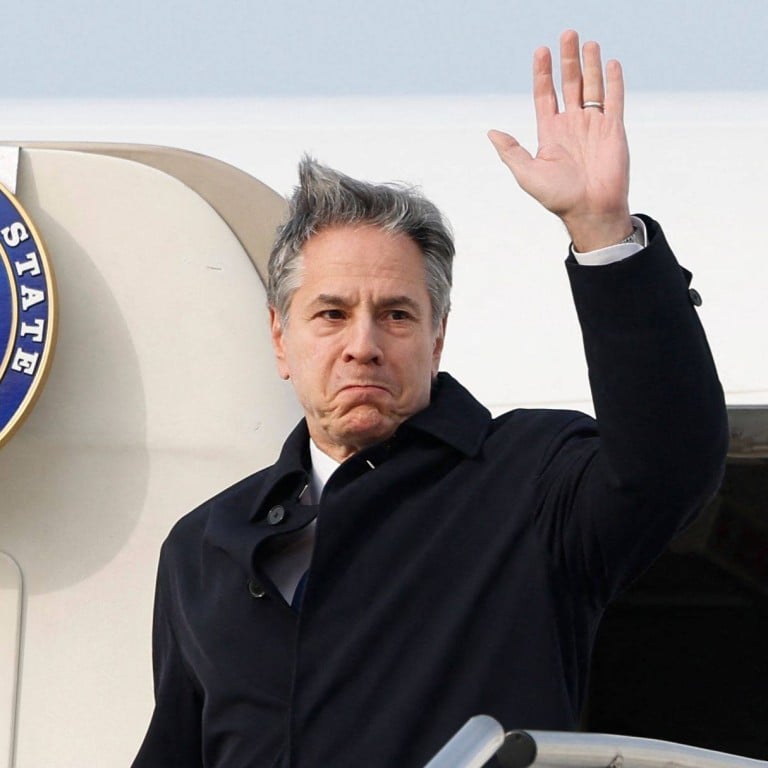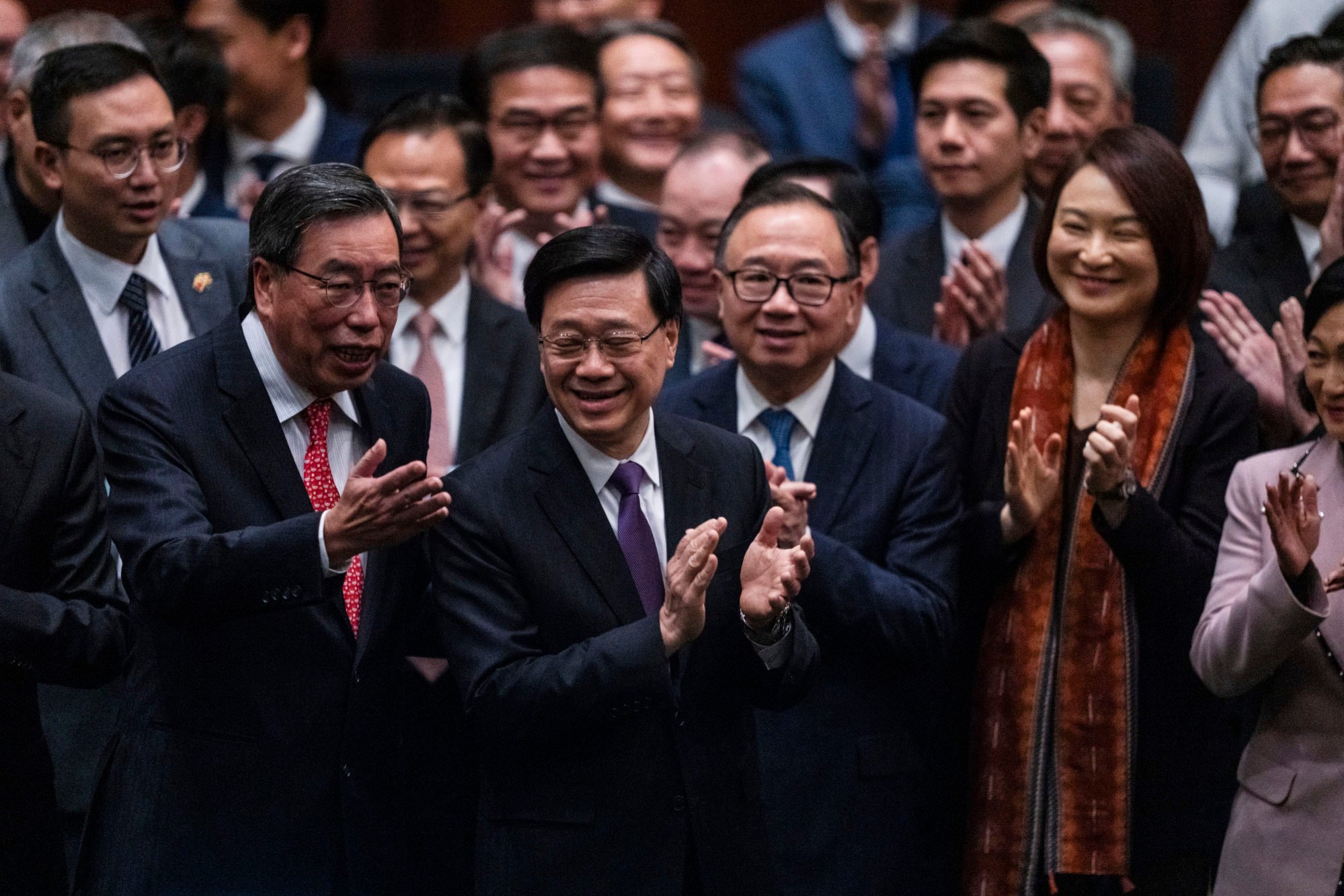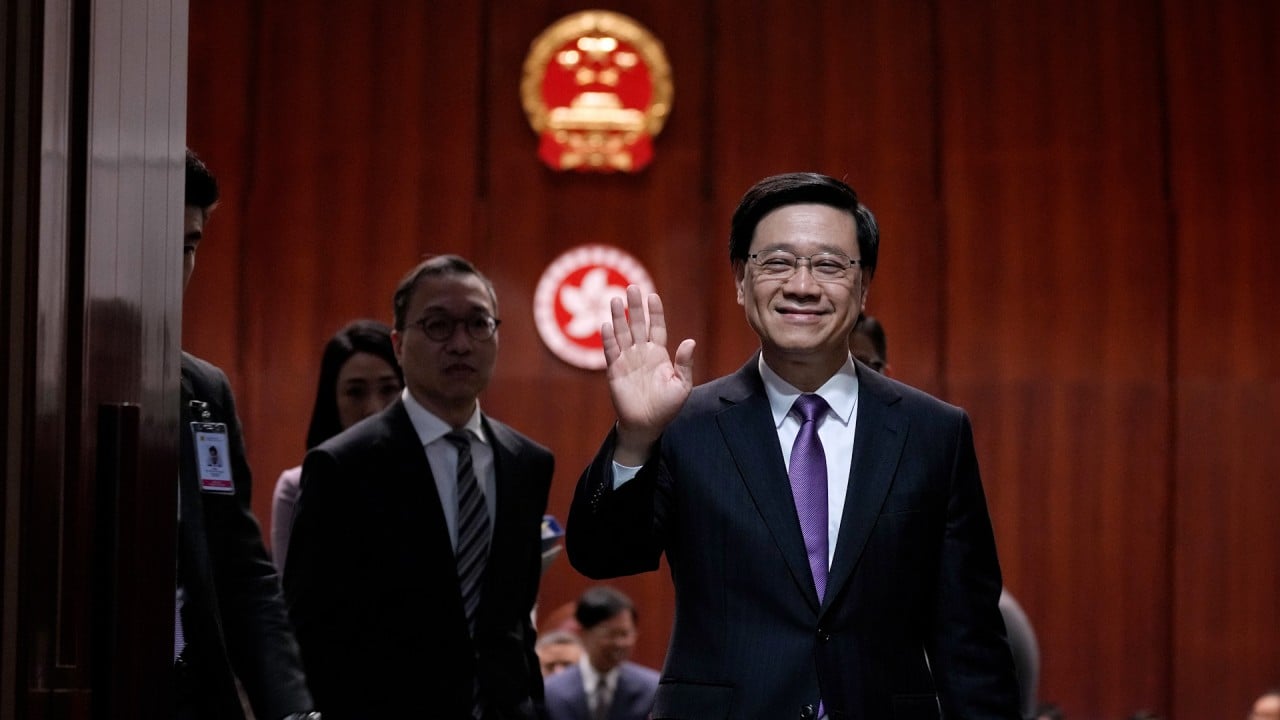
US to put new visa limits on Hong Kong officials after Article 23 national security law passage
- US Secretary of State Antony Blinken targets those deemed ‘responsible for the intensifying crackdown on rights and freedoms’
- Blinken also certifies that Hong Kong will not receive the special trading status under US law
America’s top diplomat said on Friday that the US is preparing to impose new visa restrictions on Hong Kong officials deemed “responsible for the intensifying crackdown on rights and freedoms” in the semi-autonomous city, without elaborating on the targets of the new sanctions.
Secretary of State Antony Blinken added in a statement that he would once again certify that Hong Kong will not receive the special consideration under US law that it enjoyed before its handover to China on July 1, 1997, and which remained in place for more than two decades afterwards.
“These provisions could both be used to eliminate dissent inside Hong Kong and applied outside its borders as part of [China’s] ongoing campaign of transnational repression,” he added.
The policy act, also referred to as the Hong Kong Relations Act, gives Washington discretion to treat the city separately from mainland China in areas including trade and economic engagement.
In the 2024 report, released Friday, the State Department said that China “took new actions that directly threaten US interests in Hong Kong”, asserting that some 84,000 Americans who live in the city face “heightened risk of arrest, detention, expulsion, or prosecution” if they are publicly critical of China.
It acknowledged that some of the 35 arrests that the department claimed were made over the past year, “based on publicly available information” were made “pursuant to the colonial-era statute on ‘sedition’ and the offenses listed” in the 2020 national security law.
Hong Kong national security police put HK$1 million bounties on 5 more fugitives
However, the report also said that mainland China and Hong Kong maintain key policy differences in some areas, including commercial and trade policy, internet access, and freedom of religion.
“Hong Kong continued to exercise authority in the implementation of commercial agreements and practiced free and open trade, with negligible tariff or non-tariff barriers,” it said, citing its effective enforcement of contracts, well protected property rights, autonomous monetary policy and distinct data regulations.
“Foreign and domestic companies register under the same rules and are subject to the same set of business regulations,” added the report, which included detailed sections on Hong Kong’s security functions, rule of law, human rights and academic freedom.
The State Department submits a report annually to Congress as part of the US Hong Kong Policy Act enacted in 1992 along with a certification process. Last year’s report was sent to Congress on March 31.

The Chinese embassy in Washington decried the US moves, which it said amounted to foreign interference in its domestic affairs.
“The US side disregards facts, makes irresponsible remarks about Hong Kong affairs, and levels groundless accusations,” it said in a statement, accusing Washington of “sheer political manipulation and hypocritical double standards”.
“The Chinese government remains unwavering in its determination to safeguard national sovereignty, security and development,” the embassy added. “We urge the US to earnestly respect China’s sovereignty and rule of law… and immediately stop meddling.”
The report and review process, as envisioned, aims to “promote Hong Kong’s prosperity, autonomy, and way of life” and was released annually from 1995 through 2007 and resumed since 2015 with the exception of 2017 when a fact sheet and review substituted.
Shortly before the 2024 report was released, Blinken previewed its content: “This year’s report catalogues the intensifying repression and ongoing crackdown by [mainland China] and Hong Kong authorities on civil society, media, and dissenting voices,” he said, “including through the issuance of bounties and arrest warrants for more than a dozen pro-democracy activists living outside Hong Kong.”
Washington-funded Radio Free Asia quits Hong Kong, citing staff safety concerns
Given the situation over the past year, Blinken added, the administration will roll out the new visa restrictions within the scope of the US Immigration and Nationality Act.
The State Department did not immediately respond to a request to specify which Hong Kong officials could be subject to additional US sanctions.
Officials targeted by the select committee included the city’s justice minister, Paul Lam Ting-kwok; Commissioner of Police Raymond Siu Chak-yee; Director of Public Prosecutions Maggie Yang Mei-kei; Senior Superintendent of Police Bruce Hung Ngan; Director of the Office for Safeguarding National Security Dong Jingwei; and assistant police commissioners Margaret Chiu Wing-lan and Dick Wong Chung-chun.
Hong Kong’s Article 23 law: Catholic diocese ‘to preserve integrity of confession’
In May of 2020, then Secretary of State Mike Pompeo declared that Hong Kong was “no longer autonomous”, signalling that its special designation would be called into doubt and its special treatment ended.
An executive order that put Hong Kong on a par with the mainland was also put into effect the same day.


